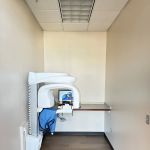Recovery Time After Oral Surgery: What You Need to Know
- 1. Understanding Recovery Time After Oral Surgery
- 2. Factors That Affect Recovery Time
- 3. Tips for Faster Recovery After Oral Surgery
- 4. Common Post-Op Symptoms and How to Manage Them
1. Understanding Recovery Time After Oral Surgery
Recovery time after oral surgery can vary depending on the type of procedure performed, the patient's overall health, and how well they follow post-operative care instructions. Most oral surgeries, such as wisdom teeth extractions or dental implants, require some downtime to ensure proper healing. Typically, the initial recovery period lasts anywhere from a few days to a week, but full recovery may take several weeks. Here's what you can expect during this process:
- Initial Rest Period: Most patients need to rest for the first 24 to 48 hours after surgery to manage pain and swelling. During this time, it's important to avoid strenuous activities.
- Swelling and Bruising: Swelling and bruising are common and can peak within 48 hours after the surgery. These symptoms will gradually subside over time.
- Return to Normal Activities: Depending on the complexity of the surgery and your overall health, you can expect to resume light activities within a few days. More intense activities may need to be avoided for a few weeks.
Understanding the general timeline for recovery can help you prepare for the post-surgery process and manage your expectations.
2. Factors That Affect Recovery Time
The speed at which you recover after oral surgery can depend on a variety of factors. Some of the most common factors that influence recovery time include:
- Age: Younger individuals generally heal faster than older patients due to better circulation and tissue regeneration.
- Type of Surgery: Simple extractions or minor procedures may have a shorter recovery time compared to complex surgeries like bone grafts or full dental implants.
- Overall Health: Your health status plays a big role in how well your body heals. Conditions like diabetes, smoking, or cardiovascular issues may prolong the recovery process.
- Post-Operative Care: Following the dentist’s or surgeon’s aftercare instructions, including medication schedules, diet restrictions, and oral hygiene practices, can significantly impact the recovery process.
By understanding the factors that affect recovery, you can make informed decisions and take necessary actions to ensure a smooth recovery.
3. Tips for Faster Recovery After Oral Surgery
While every patient’s recovery is different, there are several general guidelines that can help speed up the healing process. Consider these tips for a faster and more comfortable recovery:
- Follow Aftercare Instructions: Make sure to adhere to the care instructions provided by your dentist or surgeon, including any prescribed antibiotics or pain medication.
- Use Ice Packs: Applying ice packs to your face can reduce swelling and discomfort during the first 48 hours. Make sure to follow the recommended intervals for ice application.
- Eat Soft Foods: Avoid chewing on the side of your mouth where the surgery was performed. Opt for soft foods like yogurt, mashed potatoes, and soups during the early stages of recovery.
- Stay Hydrated and Rested: Drinking plenty of water and getting adequate rest are vital for supporting the body’s healing processes.
By following these tips, you can enhance your recovery and reduce the risk of complications.
4. Common Post-Op Symptoms and How to Manage Them
After oral surgery, it’s normal to experience some discomfort or mild symptoms as your body heals. Some of the most common post-op symptoms include:
- Pain: It’s common to experience pain after oral surgery, especially during the first few days. Your dentist may prescribe painkillers to manage this discomfort.
- Swelling: Swelling in the face and gums is a typical reaction to surgery. Ice packs, anti-inflammatory medications, and keeping your head elevated can help reduce swelling.
- Bleeding: A small amount of bleeding is expected immediately after surgery. Bite on gauze for 30 minutes to control the bleeding. If it persists, contact your dentist.
If you experience any severe symptoms, such as fever or excessive bleeding, contact your dentist immediately for guidance.







 Arise Dental - Your Local Peoria Dentist4.0 (205 review)
Arise Dental - Your Local Peoria Dentist4.0 (205 review) Light Dental Studios of University Place4.0 (279 review)
Light Dental Studios of University Place4.0 (279 review) Dentists of South Pasadena4.0 (124 review)
Dentists of South Pasadena4.0 (124 review) Aurora Dental Care4.0 (153 review)
Aurora Dental Care4.0 (153 review) ClearChoice Dental Implant Center4.0 (383 review)
ClearChoice Dental Implant Center4.0 (383 review) Kansas City Dentures and Implants5.0 (15 review)
Kansas City Dentures and Implants5.0 (15 review) The Importance of Oral Health Education During Pregnancy for a Healthy Pregnancy
The Importance of Oral Health Education During Pregnancy for a Healthy Pregnancy Best Tips for Brushing Your Teeth Properly for Healthy Gums: Essential Techniques for Oral Health
Best Tips for Brushing Your Teeth Properly for Healthy Gums: Essential Techniques for Oral Health Why Skipping Dental Checkups Can Lead to Bigger Oral Health Problems
Why Skipping Dental Checkups Can Lead to Bigger Oral Health Problems Advantages of Porcelain Dental Restorations
Advantages of Porcelain Dental Restorations How Can Diabetes Cause Tooth and Gum Problems? Preventing and Managing Oral Health Issues
How Can Diabetes Cause Tooth and Gum Problems? Preventing and Managing Oral Health Issues Healthy Habits for Promoting Good Oral Health and Hygiene: Tips for a Healthy Smile
Healthy Habits for Promoting Good Oral Health and Hygiene: Tips for a Healthy Smile